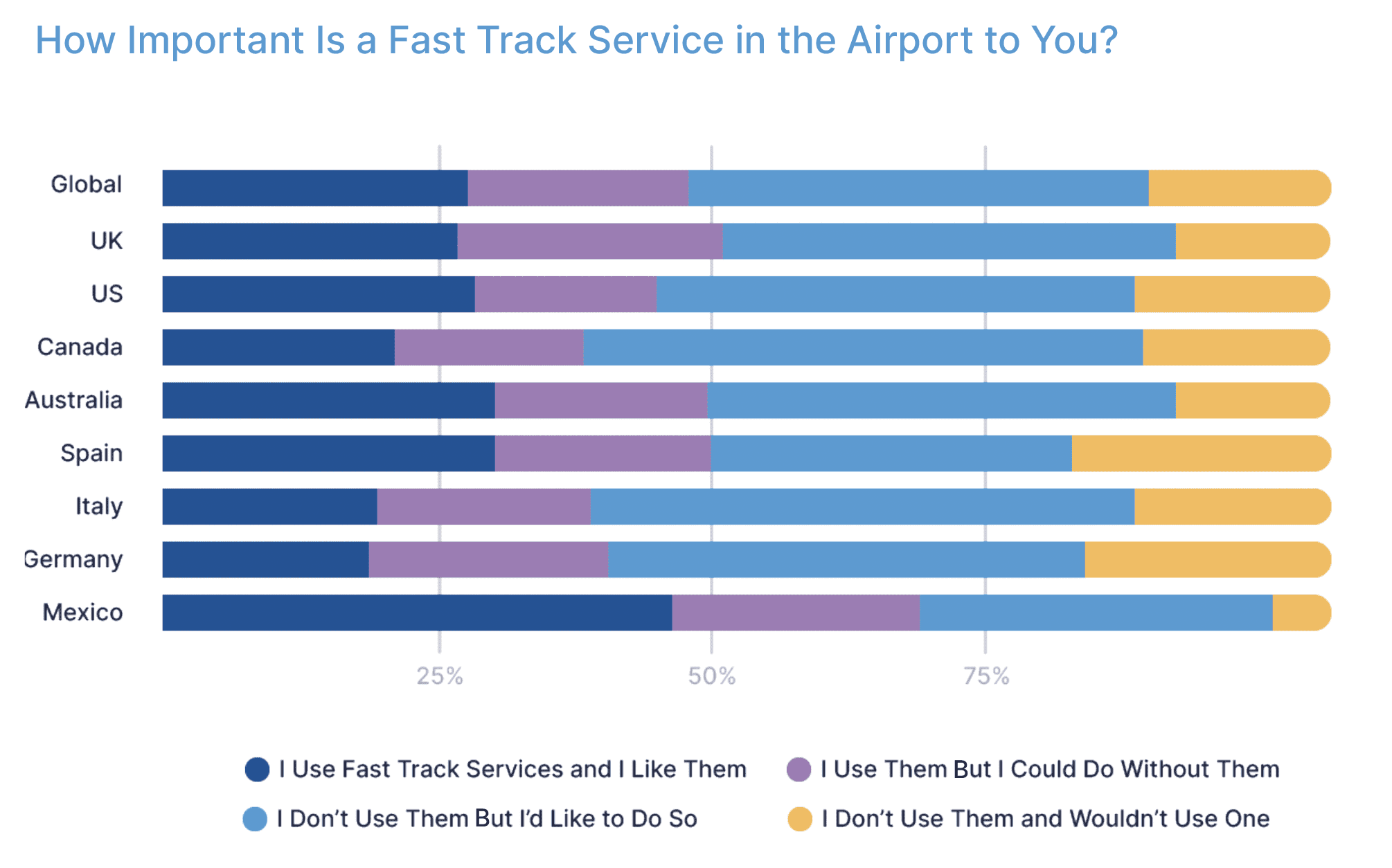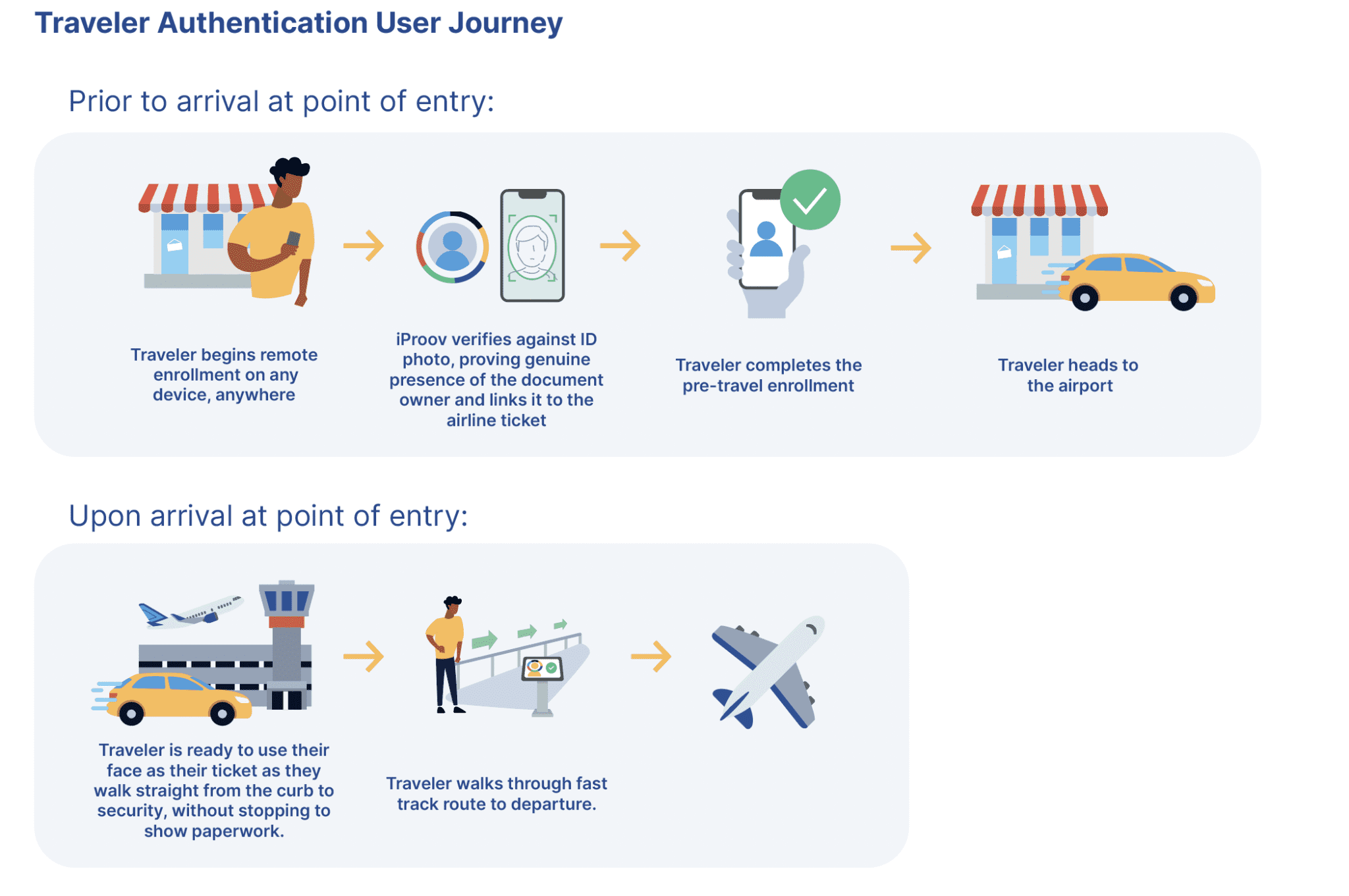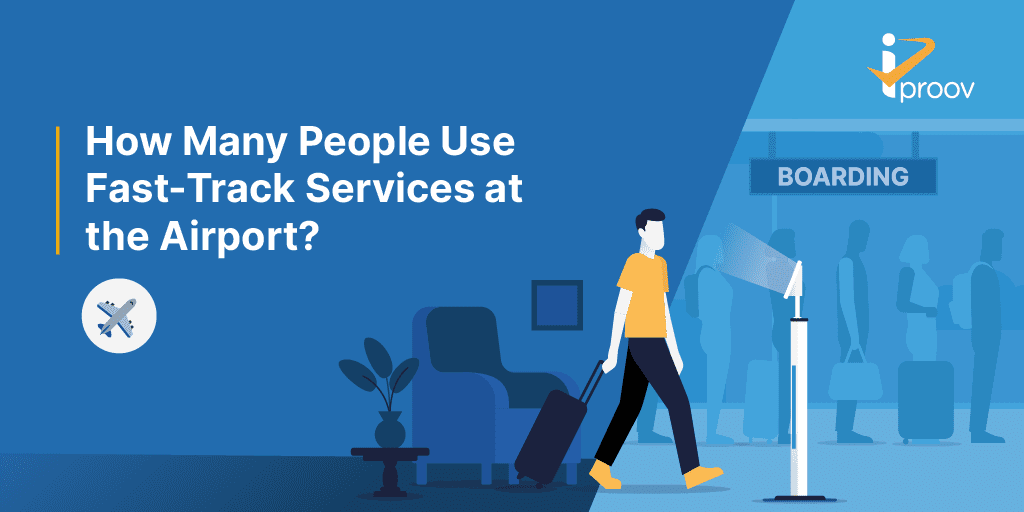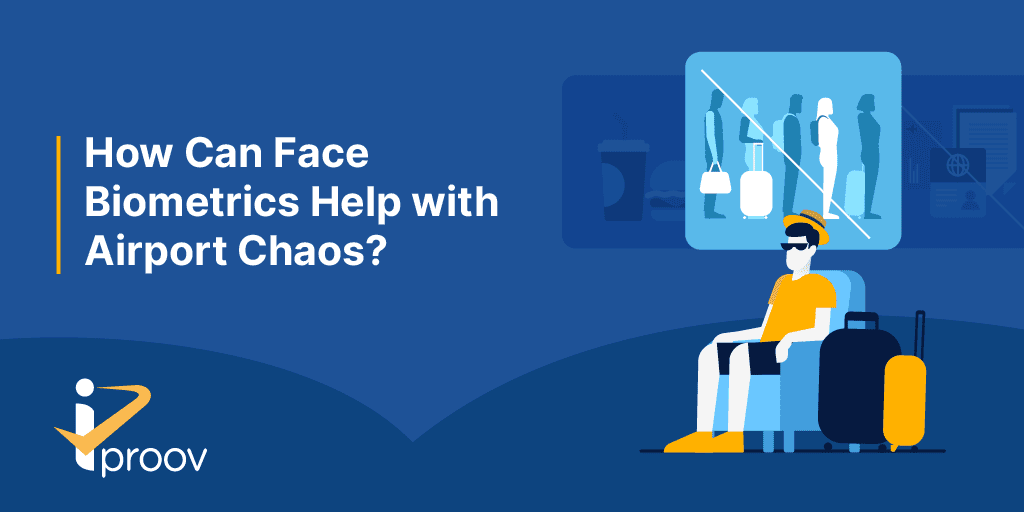June 13, 2022
With the vacation season approaching, iProov conducted an independent survey of over 16,000 consumers in eight countries, looking at fast-track travel services and how the airport experience can be improved. The surveyed countries were the US, Canada, UK, Spain, Germany, Italy, Australia, Mexico.
The questions in the survey included:
- Would you use a service that allowed you to complete ticket and ID checks online from home, so you didn’t have to show them at the airport/travel hub?
- Would you be more likely to choose an airline or travel provider that offered a pre-check from home service to speed up the process?
- What do you find annoying about air travel?
- How important is a fast-track service at the airport to you?
Download the report here for all of the data.
How Many Consumers Use Fast-Track Services at the Airport?
The responses to the survey show that travelers are very keen on fast-track services that help them get through the airport that bit quicker:
- 85% of global consumers said that they either already use fast-track services or would like to use them. Of those, 45% are already using fast-track services at the airport.
- Fast-track was most popular in Mexico. 65% of Mexican respondents are already using services that make the travel experience easier. A further 30% said they’d like to use them.
- 42% of Americans are already using fast-track airport services, with another 41% saying they’d like to do so.
- In the UK, 48% of consumers are using fast-track at the airport with another 39% keen to give them a try.
- Take-up of fast-track travel services was lowest in Canada (36%), Italy (37%) and Germany (38%) but Canadians were most likely to be interested in using them (48%).
See the full breakdown below:

For more travel stats, get your free copy of our travel report here.
It’s worth noting here that people’s definition of ‘fast-track services’ may differ across the globe. In the US, for example, Clear, TSA Pre-check, and Global Entry enable swift progress through airport security. Other consumers may be referring to airlines offering priority boarding as part of a ticket upgrade.
Whatever the definition, the conclusion is the same: consumers like and are often willing to pay for fast-track services.
What’s next for fast-track travel services?
Fast-track services for travelers can be found at numerous points during a trip. Airport security is one such bottleneck. Using priority access to board a plane is another. And it’s not just about airports — car hire firms often have fast-track desks for frequent users.
Thanks to secure remote biometric verification technology, travelers can now avoid another significant bottleneck: checking ID and tickets.
How can travel providers use remote face biometric technology to deliver fast-track ID check services?
For many years, travelers have been able to check-in online for a flight or an international rail journey in geographies. Once they get to the travel hub, they then need to have their identity documents (passport, driver’s license or ID card) checked by a member of staff.
The ID check can now also be done remotely in advance, thanks to secure facial biometric verification technology. Travelers can scan their identity documentation using their smartphone or computer and then complete a brief face scan to verify that they are who they claim to be.
Once the traveler reaches the travel hub, they avoid the long lines and can choose to complete a biometric authentication that takes a few short seconds.
By using their face as their ticket, the traveler can avoid waiting in long lines and avoid rummaging around or scrolling for tickets and ID documents.
This journey is enabled by iProov’s Genuine Presence Assurance® technology, which assures the genuine presence of travelers when they’re signing up for fast-track services at home. Genuine Presence Assurance confirms that a remote individual is the right person, a real person, and is authenticating right now — enabling the individual to be securely associated to their documents and tickets.
This is what the biometric-enabled fast-track service could look like at an airport:

Why should travel providers opt for biometric-enabled fast-track services?
Aside from the fact that 85% of global consumers said they either use fast-track services or would like to do so, there are a number of additional considerations:
- Reduce congestion: Remote verification enables a contactless, ticketless, secure travel experience rather than a manual and inefficient one — this can remove significant congestion from the concourse.
- Free up resources: Streamlining the travel process frees up personnel and other resources that can be put toward other services — such as increased personalization for travelers.
- Increase revenues: Travelers are willing to pay extra for additional convenience and speed.
- More time for relaxing: According to the TSA, ‘a stress-free traveler spends 41% more in the terminal and on their flight compared to a stressed-out traveler.’
- Happier travelers: Efficient fast-track services means a more relaxed and satisfied travel experience, and more time spent in commercial airports outlets rather than standing in long lines.
- Safeguard traveler privacy: Provide travelers with the option to travel without sharing personal data.
Biometric-enabled fast-track services will be needed as the demand for travel services soars post-COVID. Reuters predict ‘long lines, higher prices’ as airlines, hotels and rental car companies are all seeing an uptick in demand.
Simultaneously, the travel industry is facing a tight labor market as they attempt to restart and expand operations following 2+ years of depressed demand due to COVID-19. Biometric technology offers the convenience, security, efficiency, and inclusivity to meet this challenge and avoid disappointing and inconveniencing consumers.
Biometric-enabled fast-track services: a summary
- Consumers like and are willing to pay for fast-track services. The vast majority of respondents in iProov’s survey either already use or would like to use fast-track services: 85% across the globe fell into this category. Mexico has the highest uptake, whereas Canada has the lowest.
- Facial biometric technology is crucial in enabling identity document checks to be completed remotely as part of a contactless fast-track experience.
- With iProov, travelers can scan their identity documentation using their smartphone at home — from the comfort of their own sofa — and then once at the travel hub they complete a brief biometric face scan to authenticate themselves. No manual intervention or long lines.
- The value of biometrics for fast-track travel services will be crucial as demand for travel soars post-COVID and travel service providers struggle to cope.
If you’d like to learn more about how iProov can secure and streamline your travel organization’s fast-track services using face biometrics, book your demo today.


